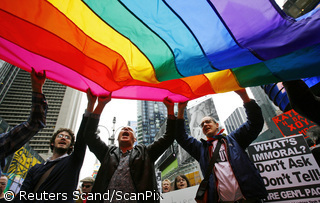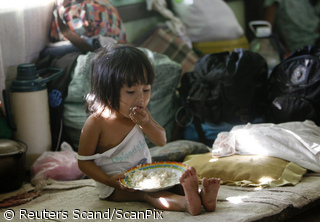Chancellor Gerhard Schroeder's party was heartened Monday after faring better than expected in east German state elections
Published:
21 September 2004 y., Tuesday
Chancellor Gerhard Schroeder's party was heartened Monday after faring better than expected in east German state elections, but a strong showing by fringe parties on the right and left raised concerns about the depth of anger over his drive to trim the welfare state.
While Schroeder's Social Democrats lost votes Sunday in both Brandenburg and Saxony, party leaders insisted the tide had turned following six months of heavy defeats in other state and European votes.
The main reason was Brandenburg's popular governor Matthias Platzeck, who passionately defended planned cuts in jobless benefits on the campaign trail and managed to keep the Social Democrats ahead in the state.
"This is a good result. I think it's grounds for optimism," Schroeder said. "We have to keep working hard, and we will."
A month ago, polls had the state's Social Democrats trailing both the former East German communists and the conservative Christian Democrats.
While no far-right group gained a share of power, their success in capitalizing on discontent over the government's welfare cuts drew expressions of concern from mainstream parties, business figures and religious leaders.
Politicians from five other parties walked out of a TV panel discussion Sunday night when the far-right National Democratic Party leader in Saxony, Holger Apfel, launched into a tirade against the political establishment.
Šaltinis:
lasvegassun.com
Copying, publishing, announcing any information from the News.lt portal without written permission of News.lt editorial office is prohibited.
The most popular articles
 Tiwonge Chimbalanga and Steven Monjeza are married, but in Malawi homosexuality is banned.
more »
Tiwonge Chimbalanga and Steven Monjeza are married, but in Malawi homosexuality is banned.
more »
 The World Bank today launched the fourth book in the critically acclaimed Moving Out of Poverty series, which provides bottom up perspectives on poverty and local realities by over 60,000 people living in 500 communities in 15 countries.
more »
The World Bank today launched the fourth book in the critically acclaimed Moving Out of Poverty series, which provides bottom up perspectives on poverty and local realities by over 60,000 people living in 500 communities in 15 countries.
more »
 Ten years ago, European leaders pledged to end poverty in the EU by 2010. As this deadline approaches, the goal is still some way off.
more »
Ten years ago, European leaders pledged to end poverty in the EU by 2010. As this deadline approaches, the goal is still some way off.
more »
 For many 2009 will be a historic year with the coming into force of the Lisbon Treaty, the outcome of the Copenhagen summit and the inauguration of the first black US president.
more »
For many 2009 will be a historic year with the coming into force of the Lisbon Treaty, the outcome of the Copenhagen summit and the inauguration of the first black US president.
more »
 Not answering the phone, celebrating Hogmanay and reading Dickens' Christmas Carol are just three seasonal traditions that MEPs shared with us.
more »
Not answering the phone, celebrating Hogmanay and reading Dickens' Christmas Carol are just three seasonal traditions that MEPs shared with us.
more »
 More and more people make their homes and own property in EU countries other than the one in which they hold citizenship.
more »
More and more people make their homes and own property in EU countries other than the one in which they hold citizenship.
more »
 European Parliament President Jerzy Buzek has made an televised Christmas and New Year address to European citizens, looking ahead to the challenges of the coming year.
more »
European Parliament President Jerzy Buzek has made an televised Christmas and New Year address to European citizens, looking ahead to the challenges of the coming year.
more »
 Lithuania takes the 1st position in the EU by the number of students in the country.
more »
Lithuania takes the 1st position in the EU by the number of students in the country.
more »
 Sergei Kovalev, former political prisoner turned activist for Russian human rights group Memorial gave an emotional and heartfelt address to the European Parliament on Wednesday 16 December.
more »
Sergei Kovalev, former political prisoner turned activist for Russian human rights group Memorial gave an emotional and heartfelt address to the European Parliament on Wednesday 16 December.
more »
 Strengthened passenger rights for travel by bus are an important item on the agenda when the Transport, Telecommunications and Energy Council (TTE) meets on 17–18 December.
more »
Strengthened passenger rights for travel by bus are an important item on the agenda when the Transport, Telecommunications and Energy Council (TTE) meets on 17–18 December.
more »